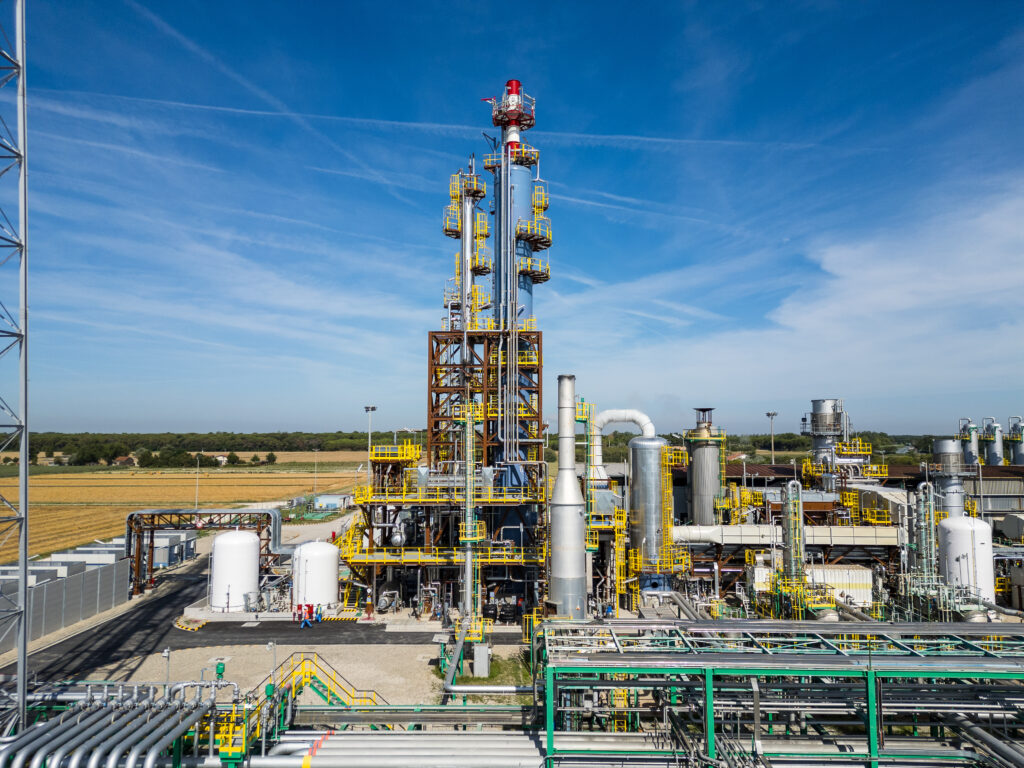Eni and Snam, have announced a joint venture involving CO2 injection activities in the reservoir for Phase 1 of Ravenna CCS. Designed to support industrial decarbonisation, Ravenna CCS is the first project for the capture, transport and permanent storage of CO₂ in Italy created for exclusively environmental purposes.
Phase 1 of the project will capture, transport and store CO₂ emissions from Eni’s natural gas treatment plant in Casalborsetti, in the municipality of Ravenna, estimated at approximately 25,000 tonnes of per year.
Once captured, the carbon dioxide is transported to the offshore Porto Corsini Mare Ovest platform through reconverted gas pipelines. The CO2 will then be injected and stored at a depth of 3,000 metres in the depleted Porto Corsini Mare Ovest gas field.
The project is already delivering a reduction of over 90% in CO₂ emissions from the Casalborsetti plant’s chimney, rising to peaks of 96% – a notable achievement given the conditions of a carbon concentration of less than 3% and the low level of atmospheric pressure making achieving success more challenging.
This excellent performance makes Ravenna CCS the world’s first industrial-scale project with such high levels of carbon capture efficiency. Another distinctive element of the Ravenna CCS project is that the facility is fully powered by electricity from renewable sources, avoiding further CO₂ emissions.
Claudio Descalzi, CEO of Eni, commented: “A project of great significance for decarbonisation has now become an industrial reality. The capture and storage of CO2 is an effective, safe – and now available – means to reduce emissions from energy-intensive industries whose activities cannot be electrified. We are using our depleted fields, existing infrastructure, and technical expertise in reinjection techniques to offer a very competitive service, which is receiving tremendous interest.”
Snam CEO, Stefano Venier, commented: “The commitment to the Ravenna CCS project is an integral part of our strategic plan and is aligned with our intention to position ourselves as a multi-molecule operator in order to enable a fair and balanced energy transition. We leverage our long-standing expertise in the transport and storage of molecules, with a specific focus on the Po Valley region, where we already have deep roots thanks to strategic assets that have supported the country’s economic and social development for decades.”
Over the coming years, with the Phase 2, the industrial-scale development of the project will be able to store up to 4 million tonnes of CO2 per year by 2030, in line with the goals defined by Italy’s Integrated National Energy and Climate Plan (PNIEC). To this end, the JV will initiate all the necessary procedures to obtain the permits in accordance with the regulatory framework and in collaboration with the authorities, stakeholders and in particular with the territory.
Read more of the ground-breaking projects defining the energy transition here.


